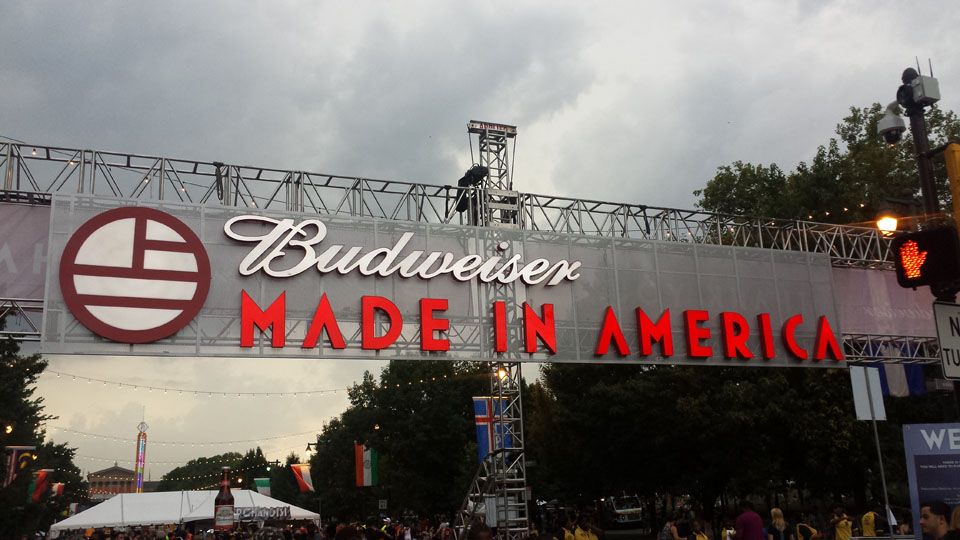
Image courtesy of Automotive Rhythms under CC BY-NC-ND 2.0.
At first, I felt uncomfortable about buying something that didn’t have a label of some kind telling me where it was made. That got me wondering.
When I did find a label, and it said: “Made in USA”, my buying decision was half made. Now all I needed was to check the size.
Soon, I was walking away from anything that had a “Made in Somewhere Else” label on it. However, I finally discovered, to my chagrin, that I couldn’t buy much of anything anymore that was made in America, by Americans.
I got very disturbed about this. Then, two days ago I had a unique opportunity to discuss this subject with Mr. Elliot W. Hoser, Executive Director of the Business Profit Bureau (PBP).
It is in his capacity as head of the Bureau, that Mr. Hoser agreed to give this writer an interview. Here is the text of that Interview:
MOORE: Thanks for talking with me this morning, Mr. Hoser.
HOSER: My pleasure, Mr. Moore.
MOORE: It was recently reported that the Bendover Bedding Corporation has just moved its factory operation to India. May I ask why you think they did that?
HOSER: I’m surprised you don’t already know, Mr. Moore. Economics. It costs less to produce bedding in India and have it shipped back to the states, where it can be sold for less and make Bendover a bigger profit.
MOORE: How is that possible, with all that moving around?
HOSER: Globalization has made U.S. capital, technology, and working skills more mobile, and less expensive. So it’s more economical and more efficient for U.S. firms to operate overseas, rather than here.
MOORE: What makes it more economical?
HOSER: Think about it. We can hire Indian or Chinese workers for less because our living standards are much higher than theirs. Our unions saw to that.
MOORE: Well, yes, we could blame the unions for our comfortable living, couldn’t we?
HOSER: Hmm. Do you have any more questions, Mr. Moore?
MOORE: Yes, I do. With thousands of lost jobs in the U.S., who will have the money to buy the products made overseas and sent back here?
HOSER: That possibility is factored in.
MOORE: Factored in? How, may I ask?
MOSER: That’s a trade secret. Do you have any other questions?
MOORE: Yes, I do.
HOSER: Fire away.
MOORE: I hear that many state legislators are planning to put a stop to outsourcing work overseas because it’s taking away local jobs. What is your reaction?
HOSER: The Bush administration opposes the states’ move and is persuading them not to go ahead with it. But anyway, believe me, Mr. Moore, the situation is nowhere near that critical.
MOORE: Really. Outsourcing work from the U.S. to India alone is projected to be a twenty billion dollar business in the next five years. You don’t consider that critical, Mr. Hoser?
HOSER: It’s a concern, but as businessmen, we have to look at the big picture. Customers are entitled to the best products and services at the best rate. If these are provided by India, or any other country, it would not be appropriate for us to impede the market forces.
MOORE: With all do respect, sir, that sounds like marketing mumbo-jumbo.
HOSER: I beg your pardon?
MOORE: The government considers outsourcing of work to foreign countries as free trade.
HOSER: And so it is.
MOORE: Now I beg YOUR pardon, sir. Free trade, as I understand it, is supposed to be mutually beneficial. I don’t see any mutual benefits here. India gets the work, corporations get the profit, and U.S. workers get the shaft. Some free trade.
HOSER: Are businessmen to be chastised for trying to increase their profits?
MOORE: Yes, if it’s at the expense of our nation and the citizens in it. What corporations are doing, in my opinion, reeks of treachery.
HOSER: Is that so? Well, Mr. Moore, have you forgotten Rule One in business? (pause) Or, come to think of it, in life, for that matter?
MOORE: And what is that rule?
HOSER: Oh come now, you’ve been around the block a few times. Have you forgotten the basic principle of selling?
MOORE: I don’t see that at work here. Enlighten me.
HOSER: Very well, Mr. Moore. Every individual in the world, American or not, cares about one thing first, himself. So it doesn’t matter where the products are made. If a customer can get the same quality for less, he’ll buy it. Which makes your high-sounding innuendo about businessmen being traitors or unpatriotic a lot of hogwash. People don’t give a damn about “Buy America” labels or any of that crap. All they want is a good deal. And they don’t much care where they get it, how they get it, or who they get it from.
MOORE: For cripe sake, Mr. Hoser, how did you ever arrive at that conclusion?
HOSER: It’s human nature.
MOORE: Mmm. Gee, I forgot about that.
“Published originally at EtherZone.com : republication allowed with this notice and hyperlink intact.”